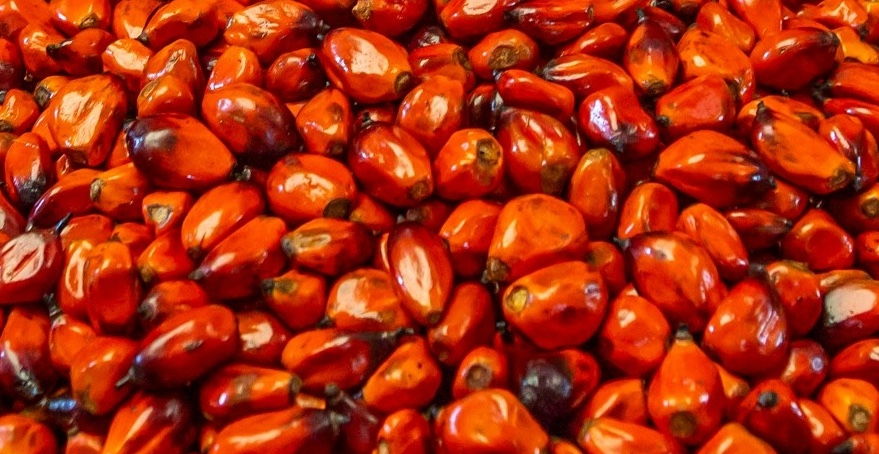What is Red Palm Oil? Why Buy It?
Red Palm Oil, extracted from the fruit of the oil palm tree (Elaeis guineensis), is a vibrant, nutrient-dense edible oil. Its characteristic deep reddish-orange color comes from its high beta-carotene content. A staple in West African and Southeast Asian diets for centuries, Red Palm Oil has gained global recognition for its versatility, nutritional value, and applications across various industries.
Rich in antioxidants such as carotenoids and tocotrienols (a form of vitamin E), Red Palm Oil is known for its health benefits. It supports cardiovascular health, boosts immunity, and promotes skin and eye health. The oil’s unique flavor profile—earthy, rich, and slightly nutty—enhances culinary creations, from traditional stews to modern baked goods. Moreover, Red Palm Oil serves as a sustainable alternative in industries like cosmetics and biodiesel, making it a highly sought-after product worldwide.
Choosing Red Palm Oil means investing in a versatile, eco-friendly product with wide-ranging benefits. Its global appeal continues to grow as consumers and industries alike recognize its value.
Applications/Uses of Palm Oil
Red Palm Oil’s versatility extends across multiple sectors, making it one of the most widely used oils globally:
Culinary Uses
- Cooking Oil: Ideal for frying, baking, and sautéing due to its high smoke point and unique flavor.
- Processed Foods: Common in margarine, ice cream, and baked goods for its texture-enhancing properties.
- Traditional Recipes: Integral to dishes like West African stews, Malaysian curries, and Brazilian feijoada.
Industrial Uses
- Biodiesel: A renewable energy source derived from palm oil, reducing reliance on fossil fuels.
- Lubricants: Used in industrial machinery due to its stability and viscosity.
Cosmetic and Pharmaceutical Applications
- Skincare: A key ingredient in soaps, lotions, and creams for its moisturizing and antioxidant properties.
- Haircare: Enhances hair health and shine in shampoos and conditioners.
- Supplements: Rich in vitamins A and E, promoting overall health.
Other Applications
- Animal Feed: Used as an energy-rich supplement for livestock.
- Candle Making: Provides a stable and eco-friendly alternative to paraffin wax.
Top Producing/Exporting Countries of Red Palm Oil
Indonesia
Indonesia leads global Red Palm Oil production, contributing over 50% of the market. Its extensive plantations and government-backed policies ensure a steady supply to major importers like India, China, and the European Union.
Malaysia
Malaysia, the second-largest producer, accounts for about 30% of global output. Known for its advanced processing technologies and sustainability efforts, Malaysia exports primarily to the Middle East, Africa, and Asia.
Thailand
Thailand’s palm oil industry is growing steadily, focusing on both domestic consumption and limited exports to neighboring countries. It aims to expand its global presence through improved production techniques.
Nigeria
As Africa’s top producer, Nigeria boasts a rich history of palm oil cultivation. Despite challenges like outdated farming methods, it remains a key exporter to Europe and other African nations.
Colombia
Colombia is Latin America’s leading producer, recognized for its sustainable farming practices. The country exports mainly to the United States and Europe, appealing to environmentally conscious markets.
Top Importing Countries of Red Palm Oil
India
India is the largest importer of Red Palm Oil, primarily for its food processing and cooking oil industries. Proximity to major producers like Indonesia and Malaysia ensures competitive pricing.
China
China ranks second, using Red Palm Oil extensively in processed foods, particularly instant noodles and snacks. Rising urbanization and industrial growth continue to drive demand.
European Union
The EU is a significant importer, with nations like the Netherlands and Germany utilizing Red Palm Oil in food, cosmetics, and renewable energy sectors. Sustainability certification is a key consideration for European buyers.
Pakistan
Pakistan imports substantial quantities for its food and confectionery industries. The growing population and demand for affordable cooking oils make Red Palm Oil a household staple.
United States
The U.S. imports Red Palm Oil for diverse applications, from health foods to biofuels. Increasing consumer awareness of sustainable and organic products boosts demand.
International Price of Red Palm Oil Per Metric Ton
The unit price ($ per kg) of Red Palm Oil in the international market depends on a host of different factors including:
- The grade of the produce (usually the more the processing, the higher the price)
- The price of the raw material
- Age of the seeds (this can affect the price)
- Production levels in producing countries
- Economic conditions and the exchange rates between the currencies of the producing and importing countries.
- The quantity ordered (the greater the quantity, the cheaper you can get it per ton)
- Harvest season (it is more costly when it is out of harvest season).
- Weather conditions (some commodities are sensitive to weather conditions).
- Freight & haulage cost
- Percentage of markup
- Import duties, trade tariffs and trade agreements between countries
- Distance from the country of origin
- Technology/Infrastructure available in country of origin
- Relationship between the buyer and seller
That said, as of January 2025, the price of red palm oil ranges between $850 and $1,250 per metric ton (1,000 kilograms) in the international market (i.e. $0.85/kg to $1.25/kg).
How To Safely Source for Your Red Palm Oil Produce
If you find the right export company, buying directly from them can make the purchase process easy and stress-free, when compared with doing the sourcing on your own. That said, there are few things to note when dealing with an export company in Nigeria or Africa. The specific requirements for Nigeria are listed below, but they mostly apply to other African countries:
- The exporting company must be registered with the Corporate Affairs Commission (CAC) to make sure the company is registered and permitted to carry out business operations.
- The export company must also be registered with the Nigerian Export Promotion Council (NEPC).
- The company must possess a domiciliary account to accept international payments.
The company should get all necessary export-related documentation done before the shipment leaves the port of origin. Some of the documents are:
- Certificate of origin
- Bill of lading
- Inspection Certificate (SGS, Cotecna, Bureau Veritas, Intertek, etc)
- Phytosanitary certificate
- Fumigation certificate
Where To Find Reliable Exporters
An important question that still needs to be answered is how to find Red Palm Oil exporters in Nigeria. You can use any of the methods listed below:
- Attend trade fairs
- Use search engines like Google, Yahoo, etc.
- Search for agents on Linkedln
- Sign up on trade platforms (e.g. Alibaba, Tradeford, Go4WorldBusiness)
- Neogric – Neogric is one of the reliable Red Palm Oil exporters in Nigeria. Neogric is rated among the best in the exporting business in Nigeria. The company is not limited to the exportation of Red Palm Oil alone but can export other agricultural produce ranging from perishables to dry seeds.
How To Pay For Your Red Palm Oil Produce
You can pay for Red Palm Oil using different methods, but three of the popular ways of paying for your agric produce are:
- Bank (T/T) Payment
- Advance Payment
- Letter of Credit (LC)
Bank Payment (T/T)
Bank payment is also known as T/T, “Telegraphic Transfer” or “Telex Transfer” In other words, it is an international wire of funds from the buyer’s bank to the seller’s bank.
A T/T is technically not the same as a wire transfer, which is often done through the SWIFT network. However, when a seller or supplier asks for a T/T payment, a wire transfer is what they are really asking for.
The wire transfer based on the SWIFT system is the most common payment method in international trade. Typically, it takes 1-5 working days to clear, and generally costs between 25 and 50 USD, depending on your agreement with the commercial department in your bank.
Advance Payment
There are sellers that will demand anywhere from 30% to 50% advance payment, and for good reason. If both parties have done deals in the past, sellers can ask for a percentage of the sales (about 30%) before they ship the produce and they can request for the remaining amount after a scanned copy of the Bill of Lading has been sent to the buyer.
It is the safest option for exporters and it also guarantees that they will have some funds to help with sourcing. It is popular among manufacturers on B2B marketplaces like Alibaba and also with commodity traders.
However, advance payment carries considerable risk for the importer (buyer) because the exporter (seller) might not be under as much pressure to ensure quality checks compared with a stricter form of payment. Some might even disappear entirely.
Having said that, advance payment is very useful and is widely used. For instance, the seller might need to secure the commodity in the face of increased competition. It can also be used when the exporter needs some money for sourcing the produce or for processing raw materials.
The most important thing is for both importer and exporter to build mutual trust by having a track record of successful deals with each other or other known companies.
Letter of Credit
Letter of Credit is an agreement generated by the bank of the buyer, guaranteeing payment once certain conditions are met. It is one of the safest types of payment available to both buyer and seller.
Some of the types of Letter of credit are:
- Commercial Letter of Credit,
- Sight Letter of Credit
- Transferrable or Non-Transferable Letter of Credit
- Standby Letter of Credit (SBLC)
- Usance or Deferred Payment Letter of Credit
- Revocable or Irrevocable Letter of Credit
- Confirmed or Unconfirmed Letter of Credit
- Revolving Letter of Credit
- Green Clause Letter of Credit
- Red Clause Letter of Credit
L/Cs are not totally safe (for either buyer or seller) too. For instance, sellers can ship substandard products or those that are different from the ones agreed upon. In this case, the seller gets paid and the buyer receives goods he cannot use.
And speaking of the dangers of L/Cs for the exporter, the conditions in the Letter of credit might be practically impossible to fulfil; if an exporter agrees to such, he might be unable to receive payment. A report stated that of the letters of credit received in the UK, 50% are unworkable while 70% are rejected by the banks for payment.
Shipping & Delivery Terms
When shipping your products, it is important to take note of a few factors:
Order Quantity
For smaller shipments, airfreight is often the preferred option but as the order volume increases, sea freight could become significantly cheaper. Usually when the order is close to a full container load (20 ft), sea freight is used. Although the Covid-19 pandemic caused an increase in cost of delivery of products, prices have stabilised.
Cost of Delivery
When the order is of a large volume, sea freight often turns out cheaper than air freight. In fact, air freight could be up to 6 times more costly than sea freight if the volume is large enough.
Time of Delivery
Sometimes, time will be more important to the buyer than the cost of delivering the product. In this case, air freight will be the logical option (as stated above, the cost will be more). But if you have more time as a buyer, you should strongly consider using sea freight.
Incoterms
Incoterms refer to generally accepted shipping and payments terms. For example, buyers that have representatives in the source country or that can negotiate with the freight company can use the Free of Board (FOB) terms, since it gives them more control and can save them some money.
However, if the shipment is small or the buyer doesn’t have an extensive network to effectively handle payment for freight, insurance and port charges, he will be better off choosing the Cost-Insurance-Freight (CIF) payment option.
Neogric: Top Exporters and Suppliers of Red Palm Oil
We invite you to place your order for high-quality Red Palm Oil with us at Neogric. We are a trusted global commodity sourcing and trade solution provider with deep expertise in the Red Palm Oil industry. Whether you’re a small business or a large corporation, our wide range of products and technology powered, end-to-end supply chain make the export of quality Red Palm Oil easy, quick and safe. Whichever region of the world you are, be it Europe, Asia, USA, Canada, Other North/Central American countries, Africa, South America or Oceania, you can reliably order your agricultural produce and we will ensure it is successfully delivered to you, on time.
Why Buy Red Palm Oil From Neogric?
Choosing Neogric as your Red Palm Oil supplier offers several advantages:
- Quality Assurance: We maintain strict quality control standards, ensuring our Red Palm Oil and other products are of the highest quality.
- Wide Product Range: We offer a diverse selection of products, catering to various needs.
- Reliable Supply Chain: Our efficient technology-powered end-to-end supply chain ensures timely delivery of your orders.
- Expertise and Support: Our team of experts provides valuable insights and support, making your purchasing process smooth and hassle-free.
Our Red Palm Oil Trade Specifications
- Origin: Nigeria
- Product Name: Red Palm Oil
- Physical Specification: Based On Buyer’s Specification
- Quantity: Based On Buyer’s Specification
- MOQ: 10 Metric Tonnes
- Trade Process: Ex Works/FOB/CIF
- Admixture/Impurities: Based On Buyer’s Specification
- Inspection: SGS/Cotecna/Intertek/Bureau Veritas
- Packaging: Based On Buyer’s Specification
- Payment Method: TT (Bank Transfer) or L/C
- Shipping Time: 15 to 25 Days After Confirmation of TT or L/C
- Loading Port: Lagos, Nigeria
Expected Shipping Documents
- Bill of Lading
- Certificate of Origin
- SGS Inspection Certificate
- Phytosanitary Certificate
- Fumigation Certificate
- Commercial Invoice
- Packing List
Place Your Red Palm Oil Order With Neogric
Contact us today to place your order for high-quality Red Palm Oil. Our team is ready to assist you with all your procurement needs.
- Tel: +2348147860157
- Email: neo@neogric.com
- WhatsApp: Chat With Us
Chat With Us


